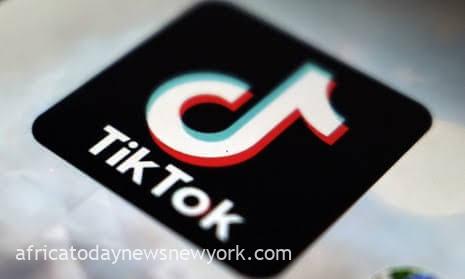TikTok came under scrutiny from the European Union on Monday as it announced a formal investigation into the platform’s compliance with regulations safeguarding minors online, as stipulated in a landmark law governing digital content oversight.
Following the introduction of the Digital Services Act (DSA) by Brussels, this represents the second inquiry into a leading online platform, following an earlier investigation into tech tycoon Elon Musk’s X in December.
Brussels holds a distinct apprehension regarding the perceived inadequacy of measures taken by the video-sharing app, owned by China’s ByteDance, to counteract detrimental impacts on the younger demographic.
One primary concern revolves around the “rabbit hole” effect, where users are funneled into increasingly related content through algorithms, potentially leading to exposure to more perilous material.
TikTok’s age verification tools are under scrutiny by the European Commission, which questions whether they are reasonable, proportionate, and effective as required.
Formal proceedings have been launched by the commission to investigate potential breaches by TikTok under the DSA, with a focus on areas like “advertising transparency” and “data access for researchers.”
This move was prompted by an evaluation of a risk assessment report furnished by TikTok, along with its responses to queries from Brussels regarding the platform’s strategies for tackling illegal content, safeguarding minors, and managing data access.
The commission stated that regulators will maintain their efforts to collect evidence, asserting that this course of action empowers them to implement further enforcement measures if required.
Read also: Biden Finally Joins TikTok Ahead Of 2024 Election
‘As a platform that reaches millions of children and teenagers, TikTok must fully comply with the DSA and has a particular role to play in the protection of minors online,’ said the EU’s internal market commissioner, Thierry Breton.
‘We are launching this formal infringement proceeding today to ensure that proportionate action is taken to protect the physical and emotional well-being of young Europeans. We must spare no effort to protect our children,’ Breton added.
In the EU, TikTok’s monthly user count has surpassed 142 million, reflecting a notable escalation from the 125 million recorded in the previous year.
‘TikTok needs to take a close look at the services they offer and carefully consider the risks that they pose to their users — young as well as old,’ commission executive vice president Margrethe Vestager said.
The formal investigation will center on four key areas: TikTok’s assessment and management of systemic risks, the company’s adherence to safeguarding minors’ privacy and safety, its efforts in maintaining a “reliable” advertising platform, and the measures implemented to enhance transparency.
According to TikTok, efforts are underway to ensure the protection of minors in the online sphere.
‘TikTok has pioneered features and settings to protect teens and keep under 13s off the platform, issues the whole industry is grappling with,’ a TikTok spokesperson said.
‘We’ll continue to work with experts and industry to keep young people on TikTok safe, and look forward to now having the opportunity to explain this work in detail to the Commission.’
The proceedings don’t have a set end date.
Brussels has the power under the Digital Services Act (DSA) to slap big fines on companies, with penalties potentially reaching up to six percent of their global revenues.
Plus, the commission can even shut down platforms across the 27-nation bloc if they repeatedly break the rules.
The EU passed this law last year, covering big online players like TikTok, X, Facebook, and Instagram.
These rules make companies step up their game in moderating online content and ensure online shoppers are protected by digital retailers.Since February 17, all platforms have to follow the DSA law.

